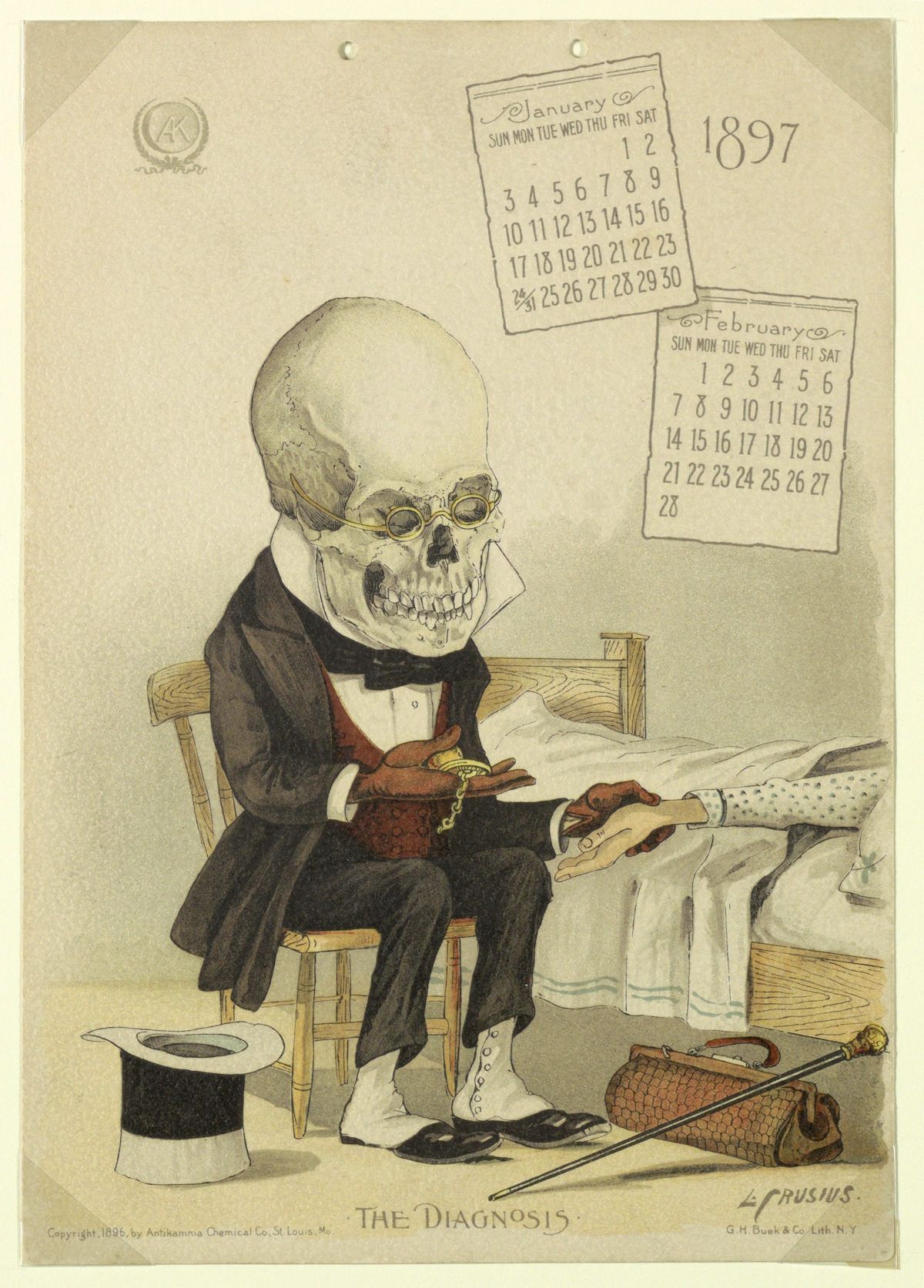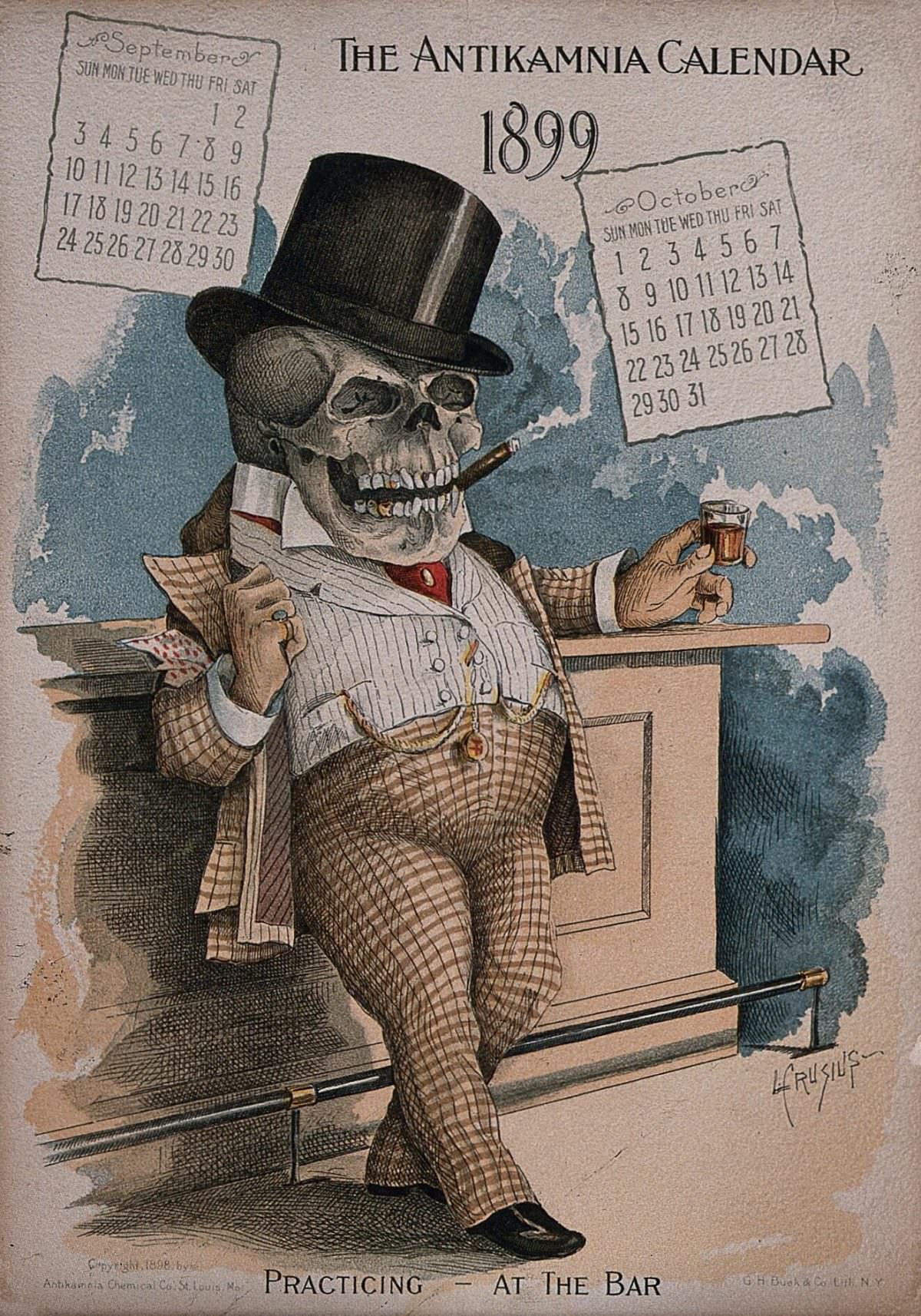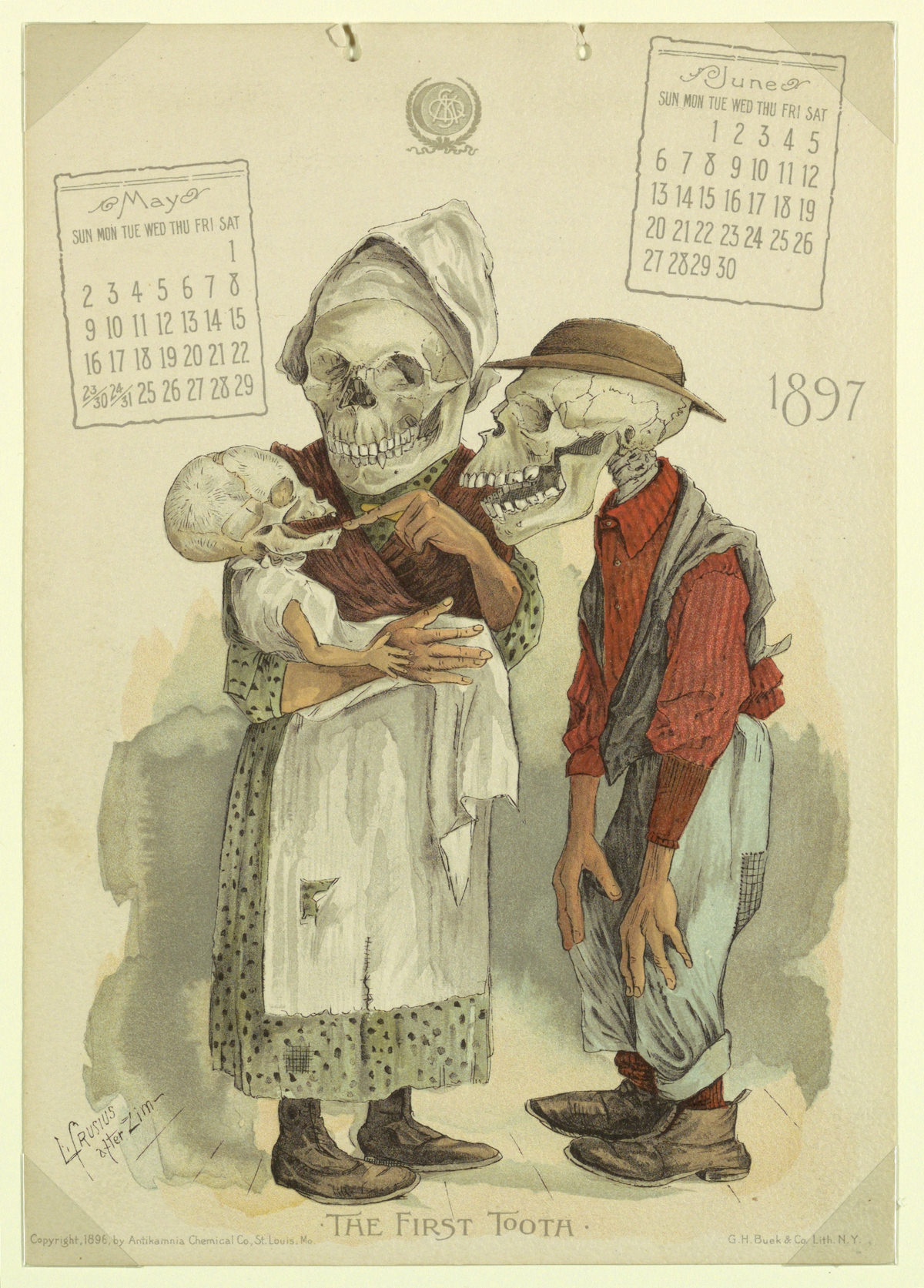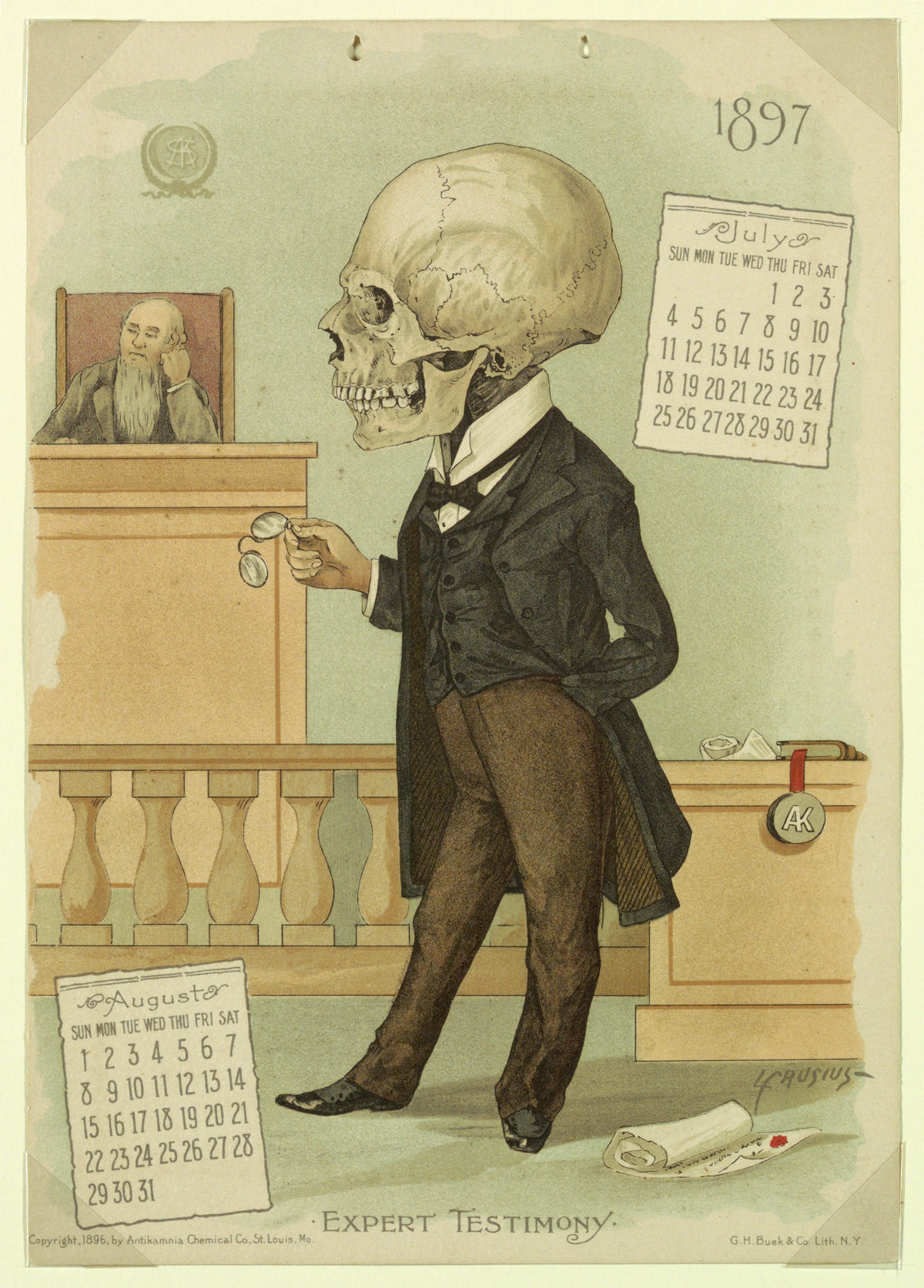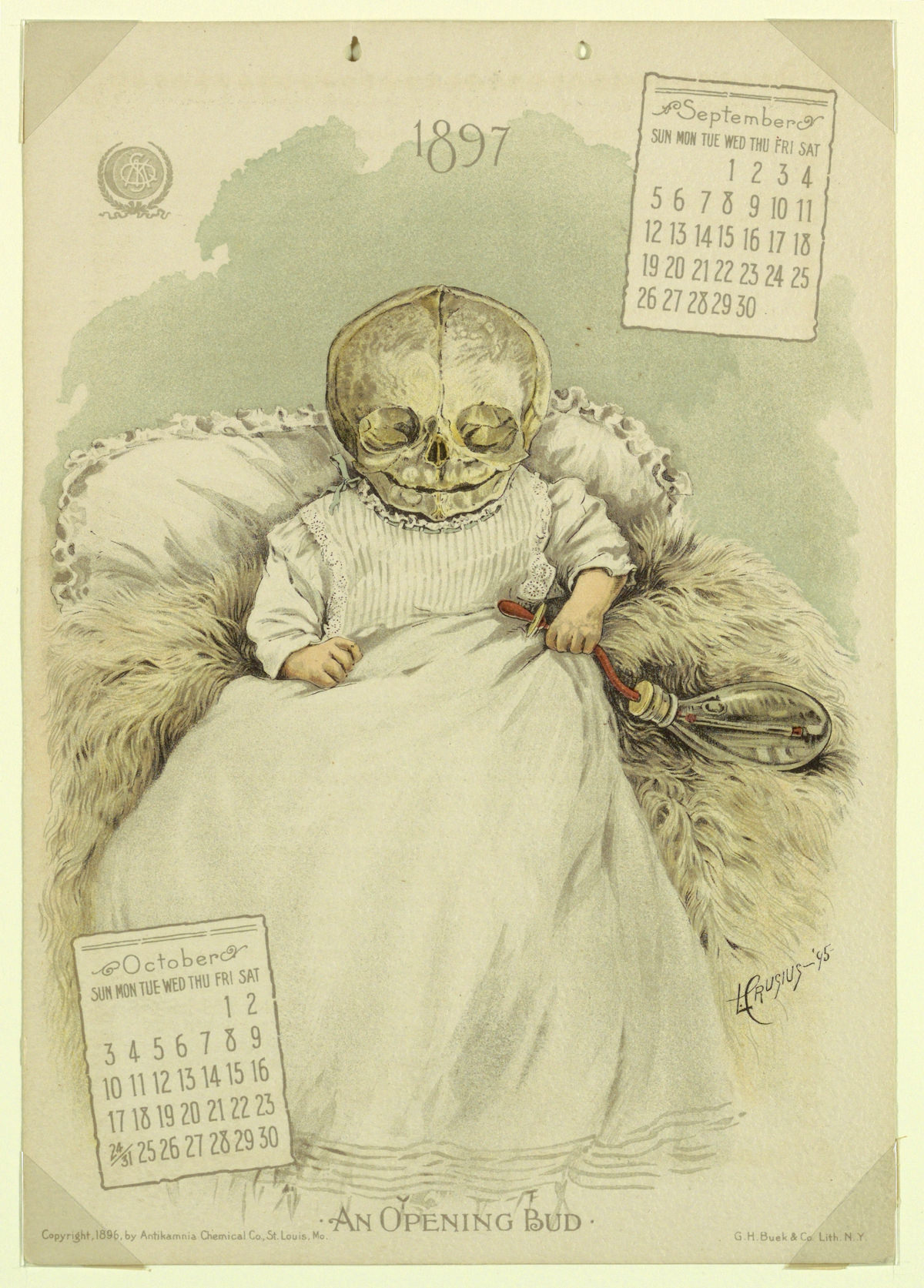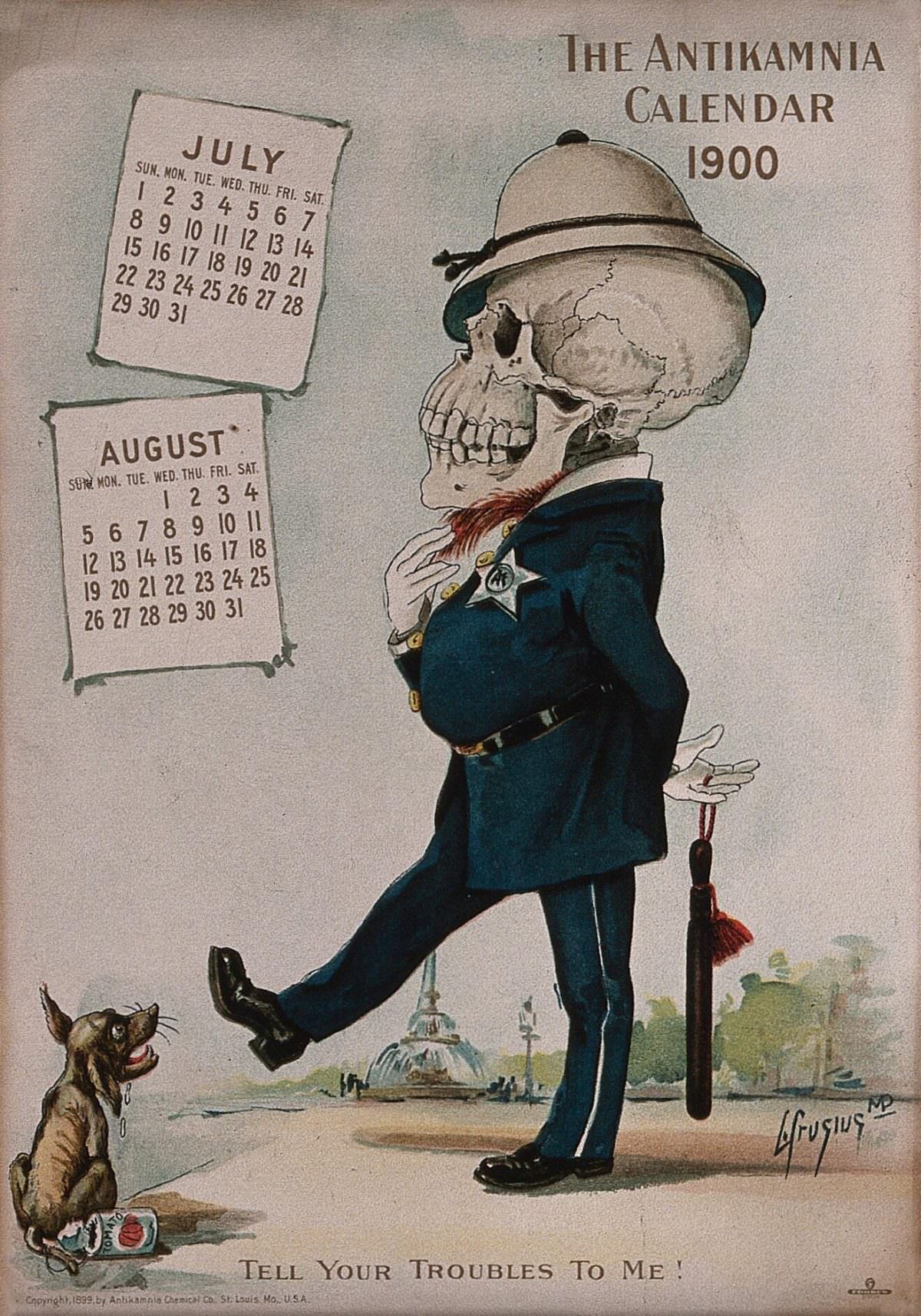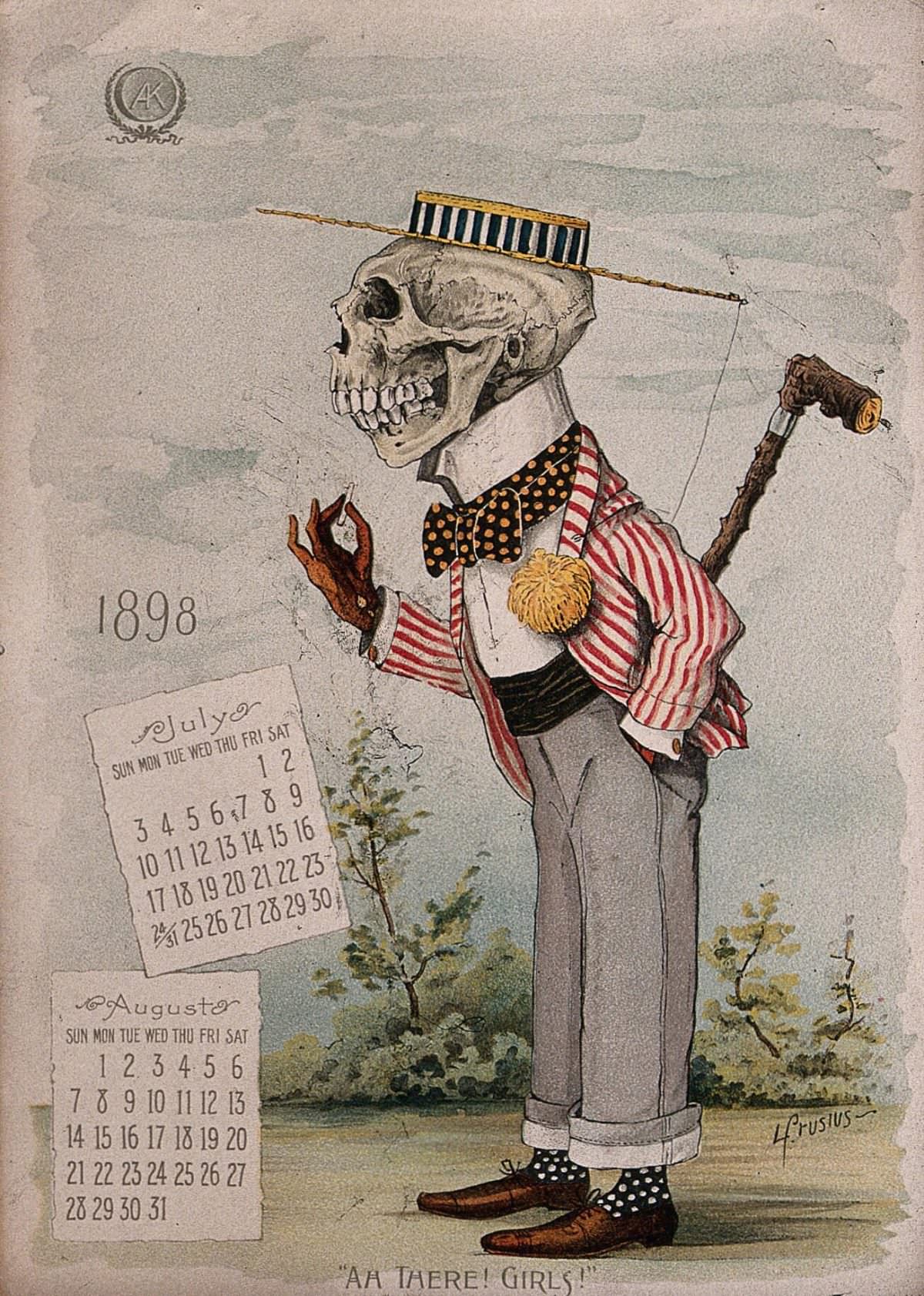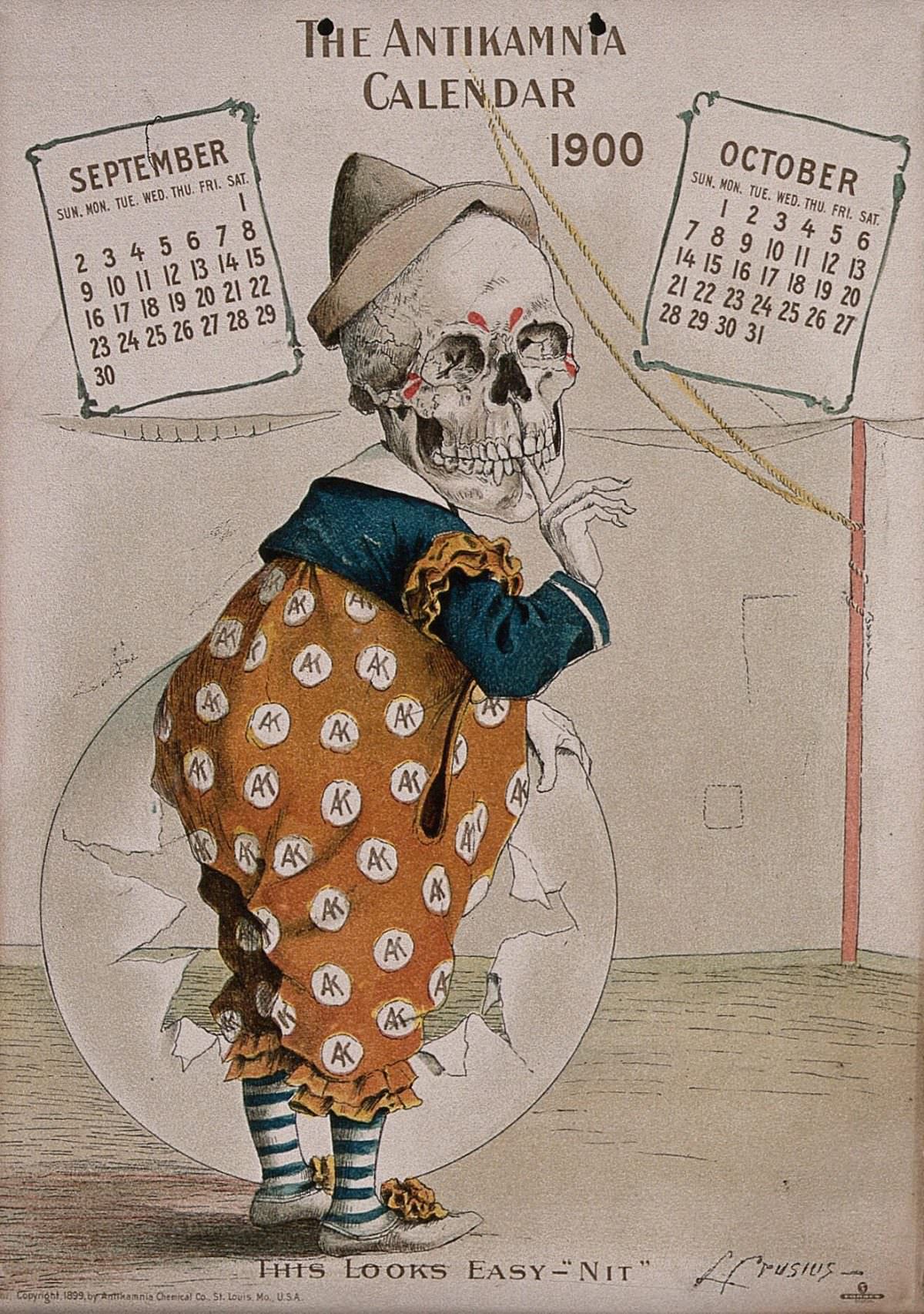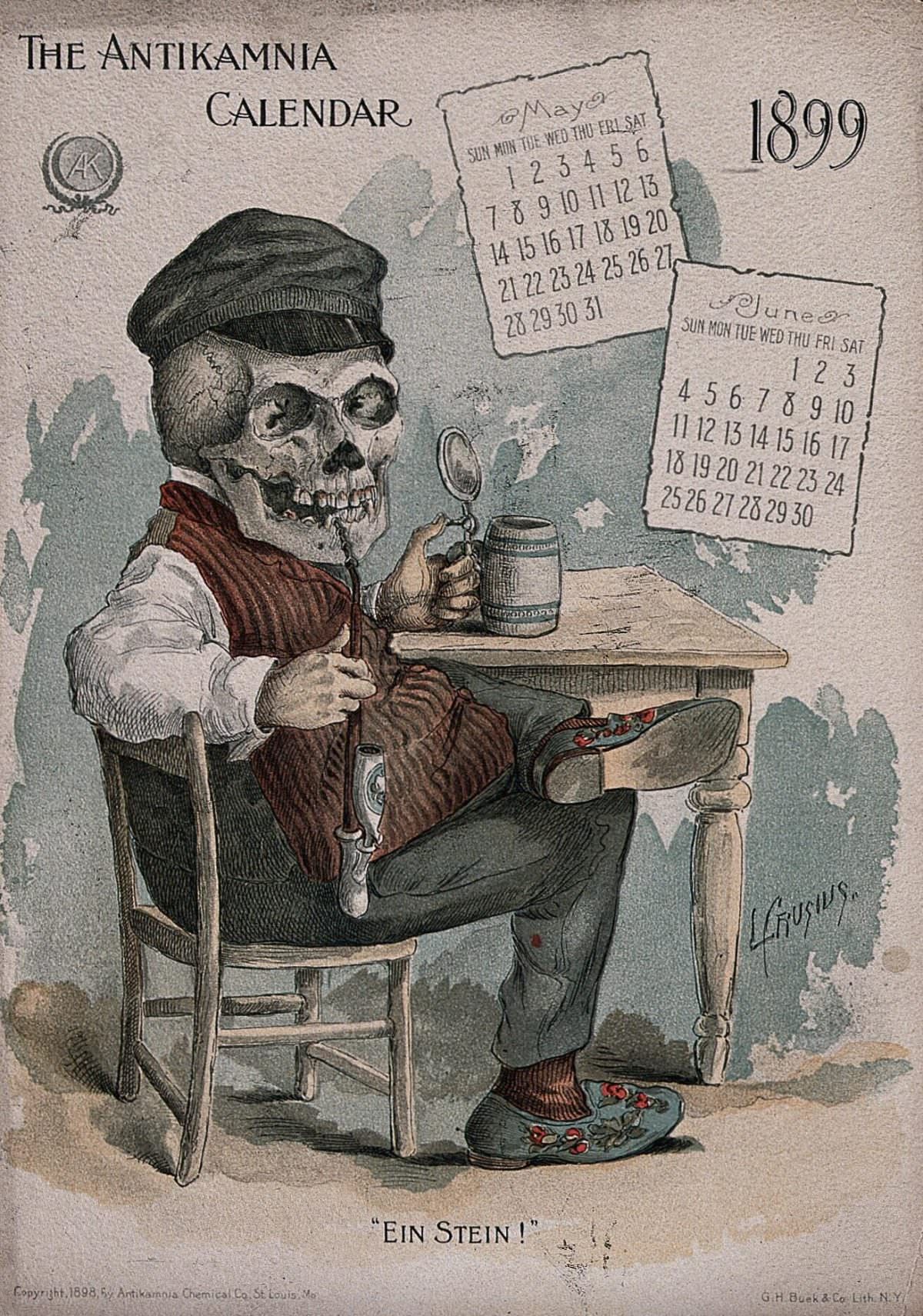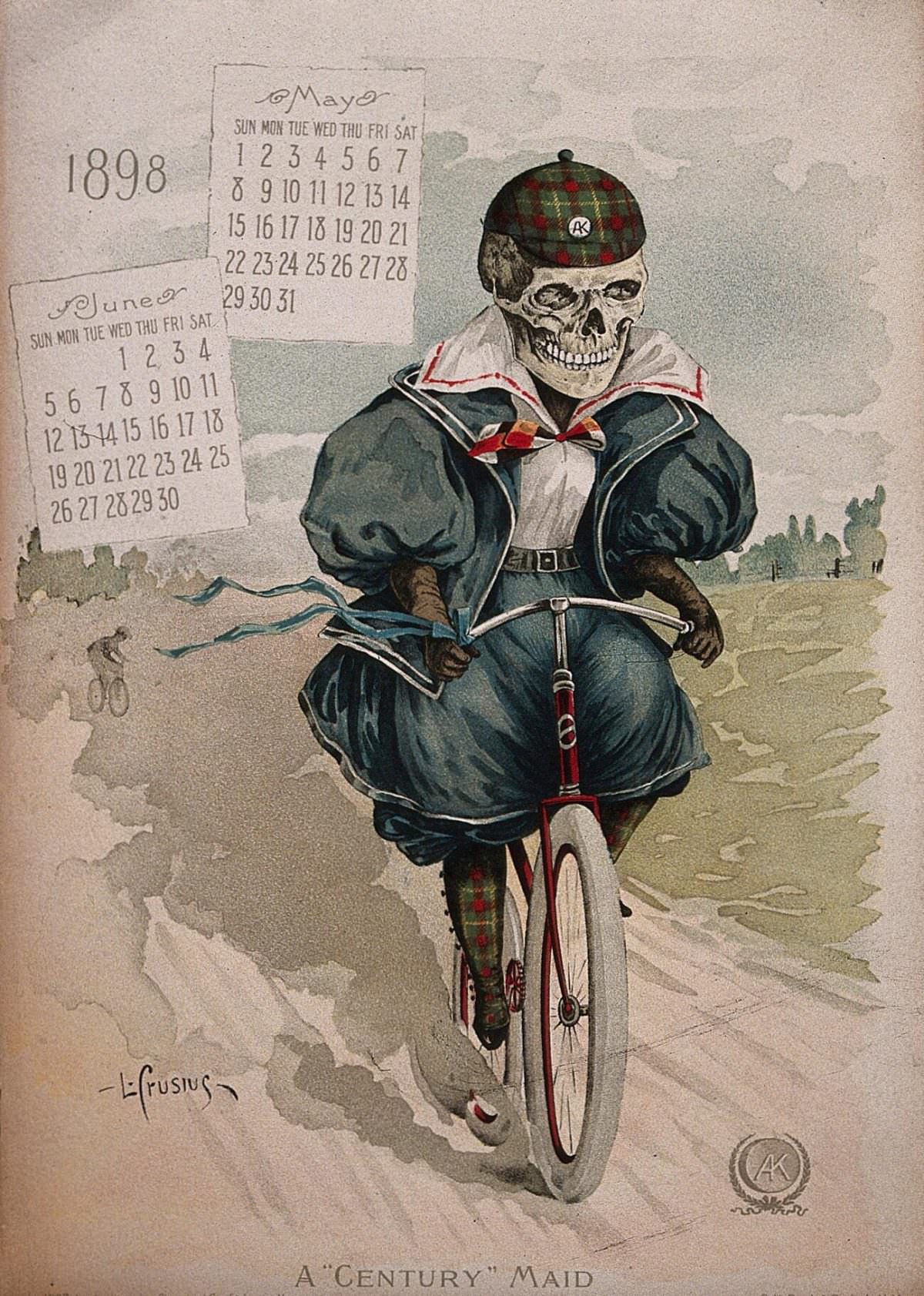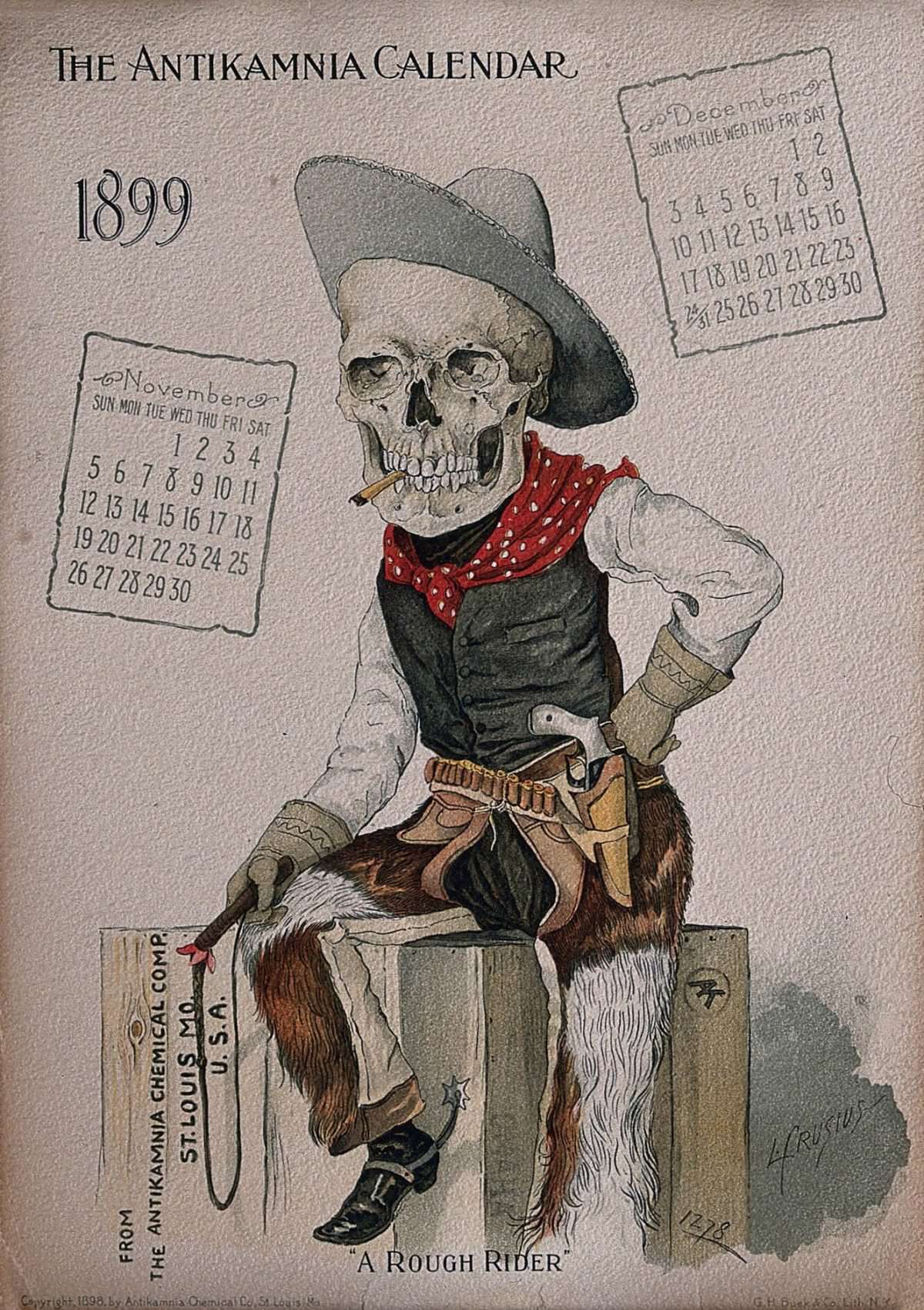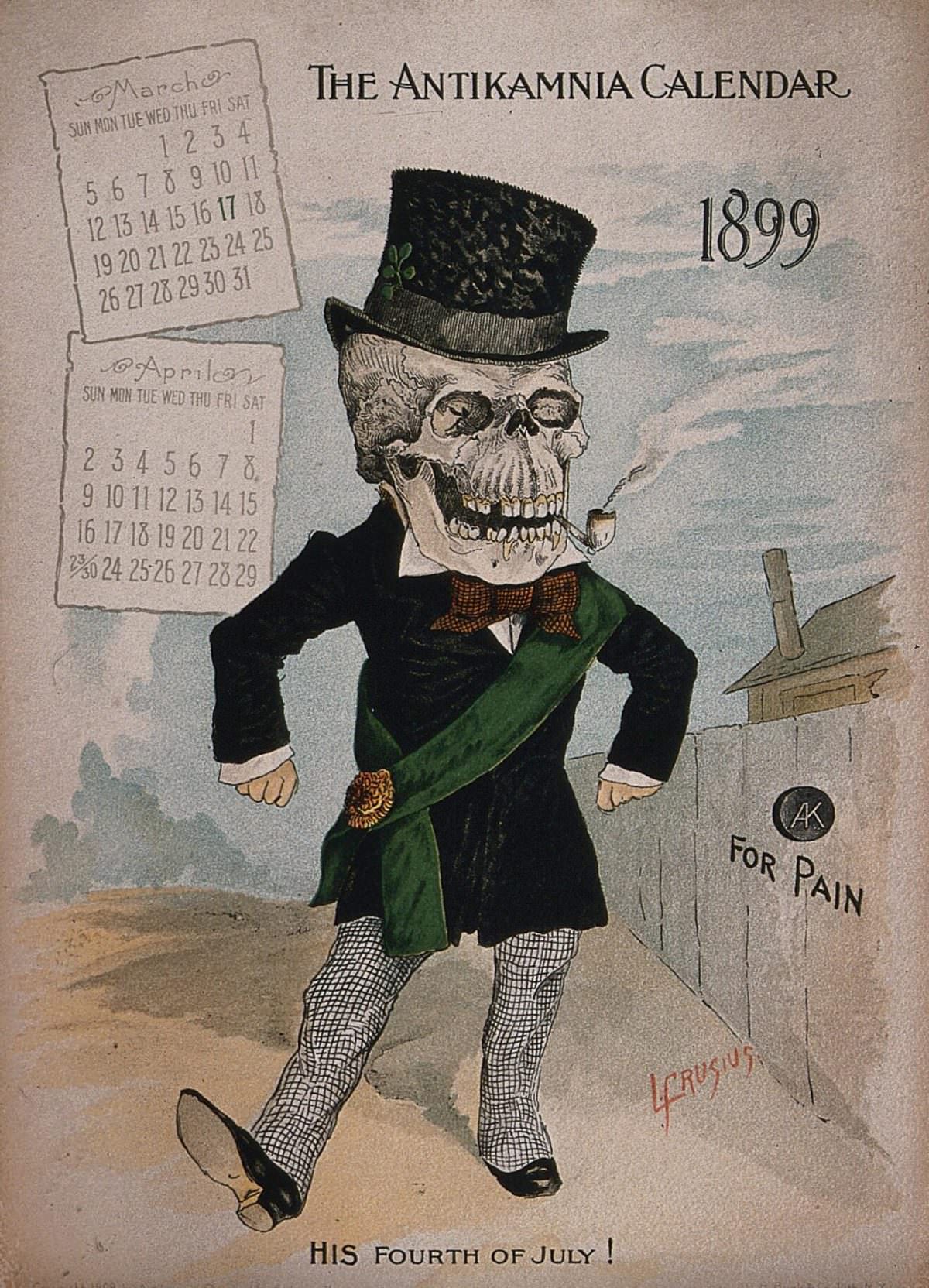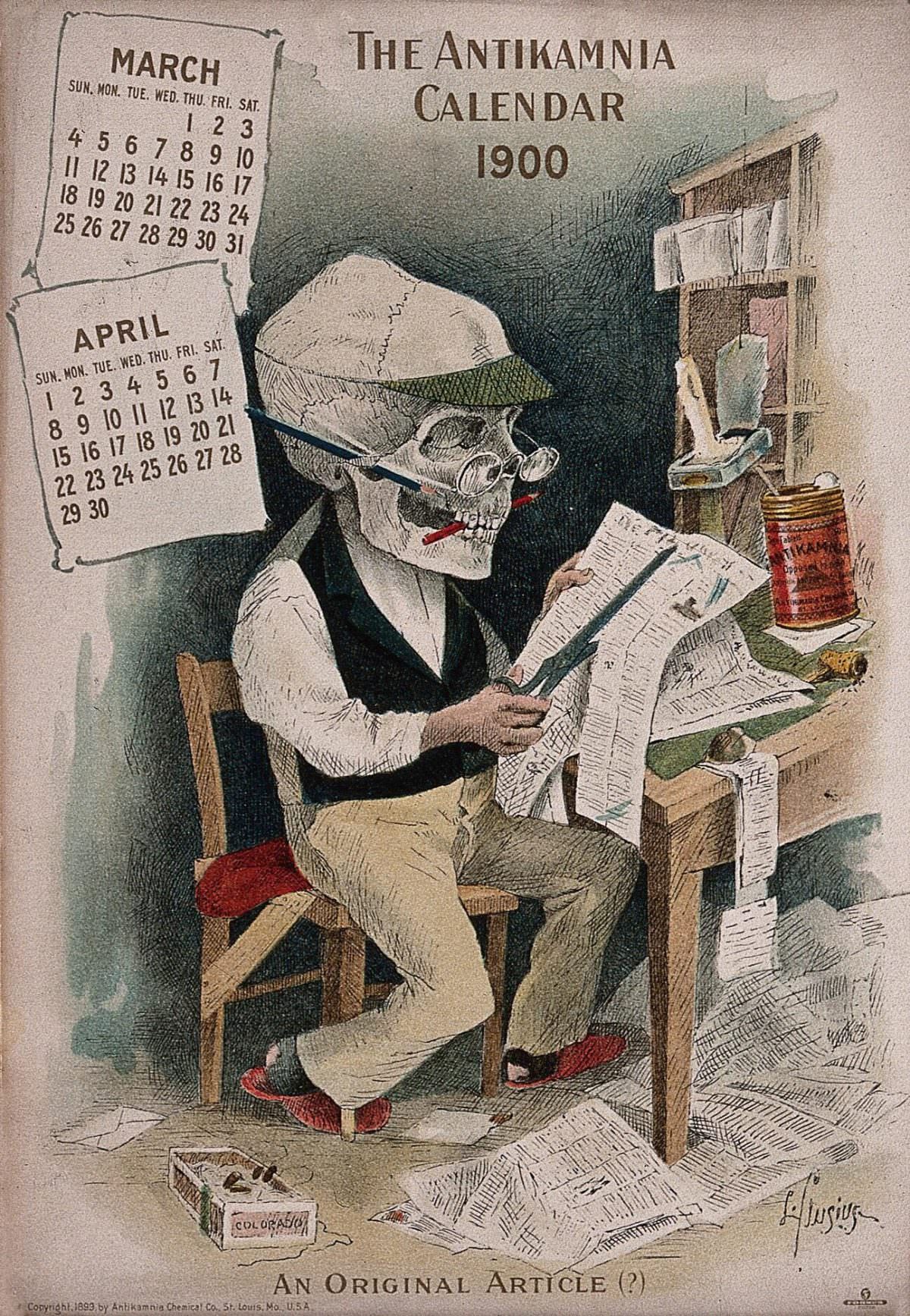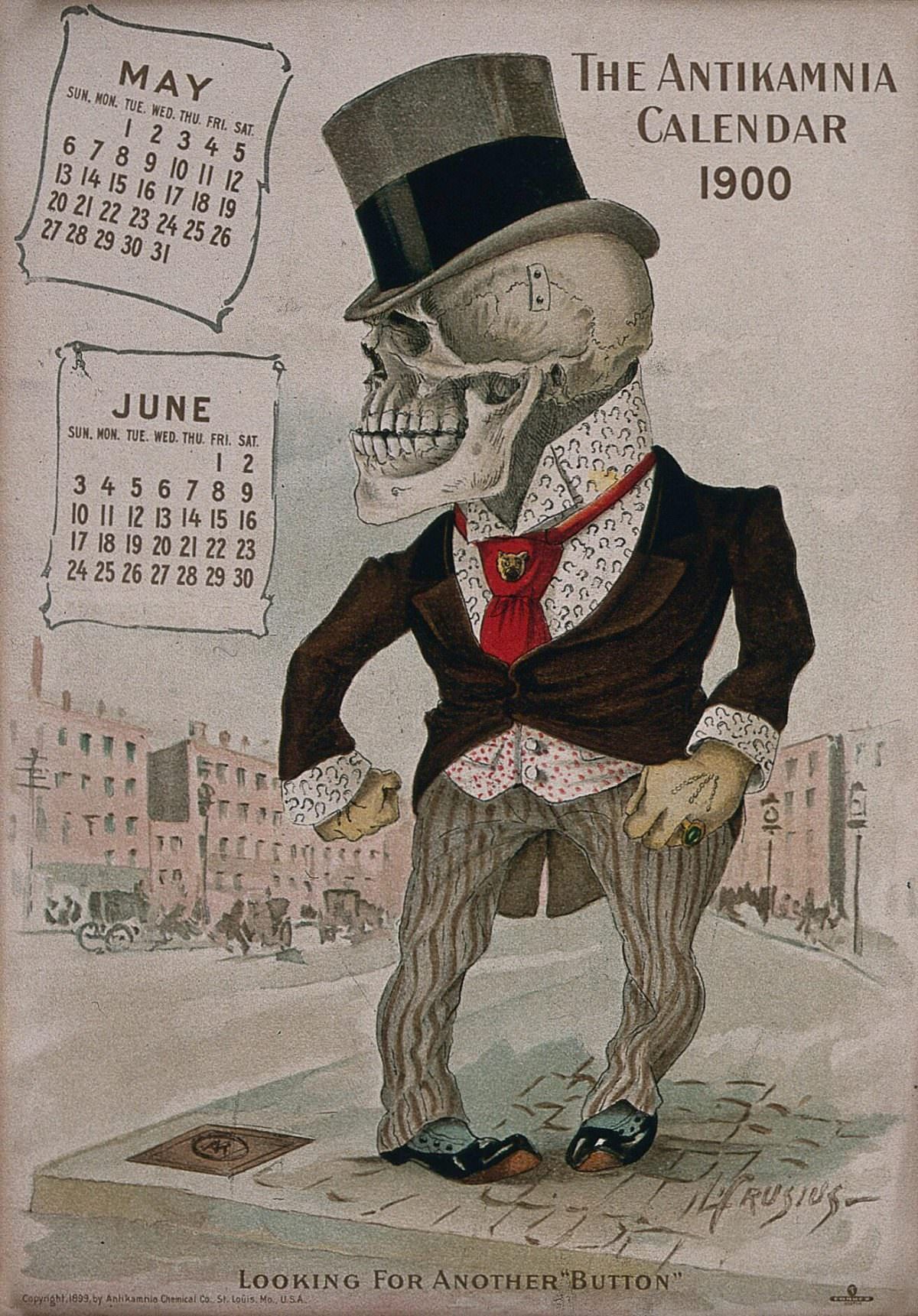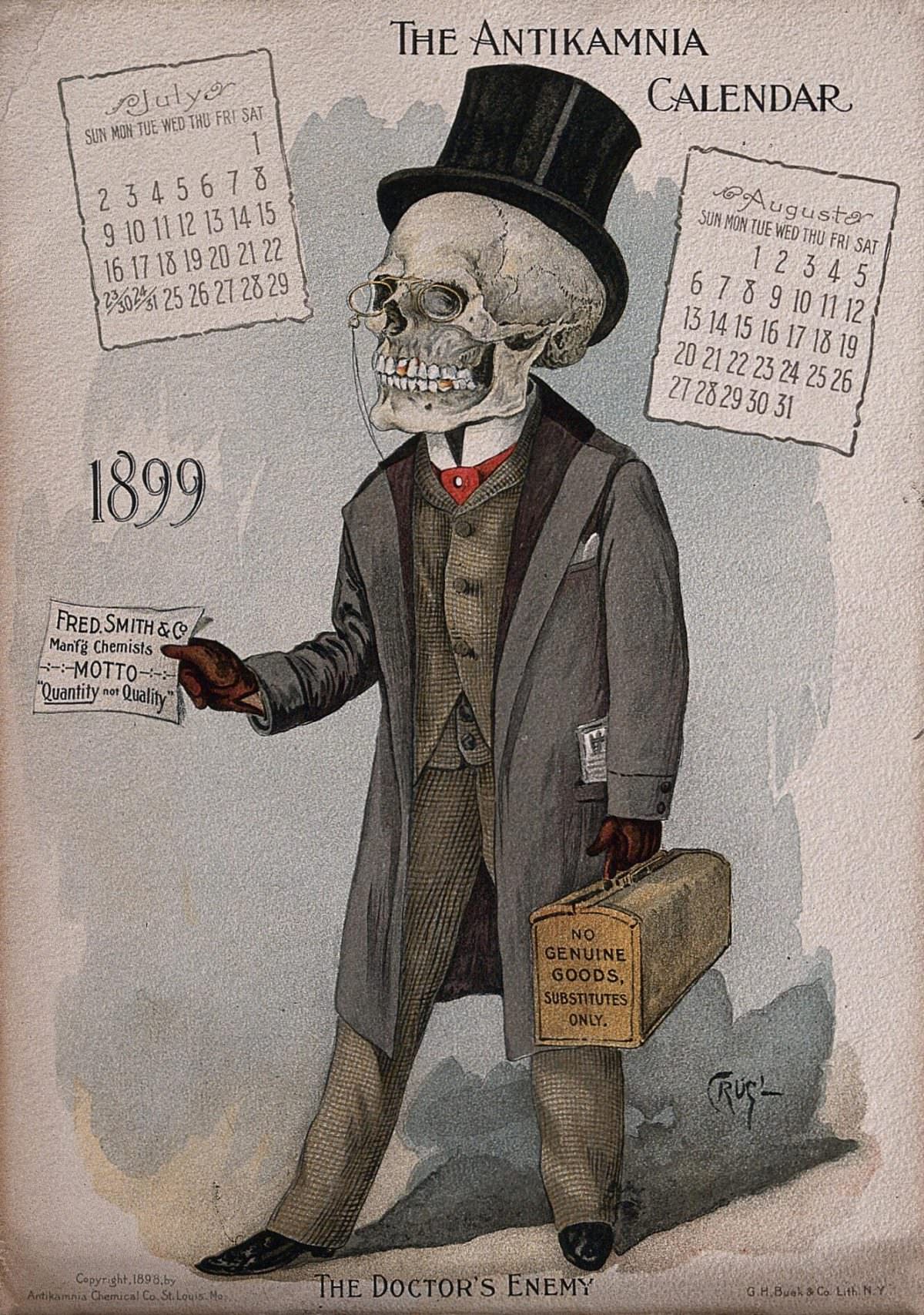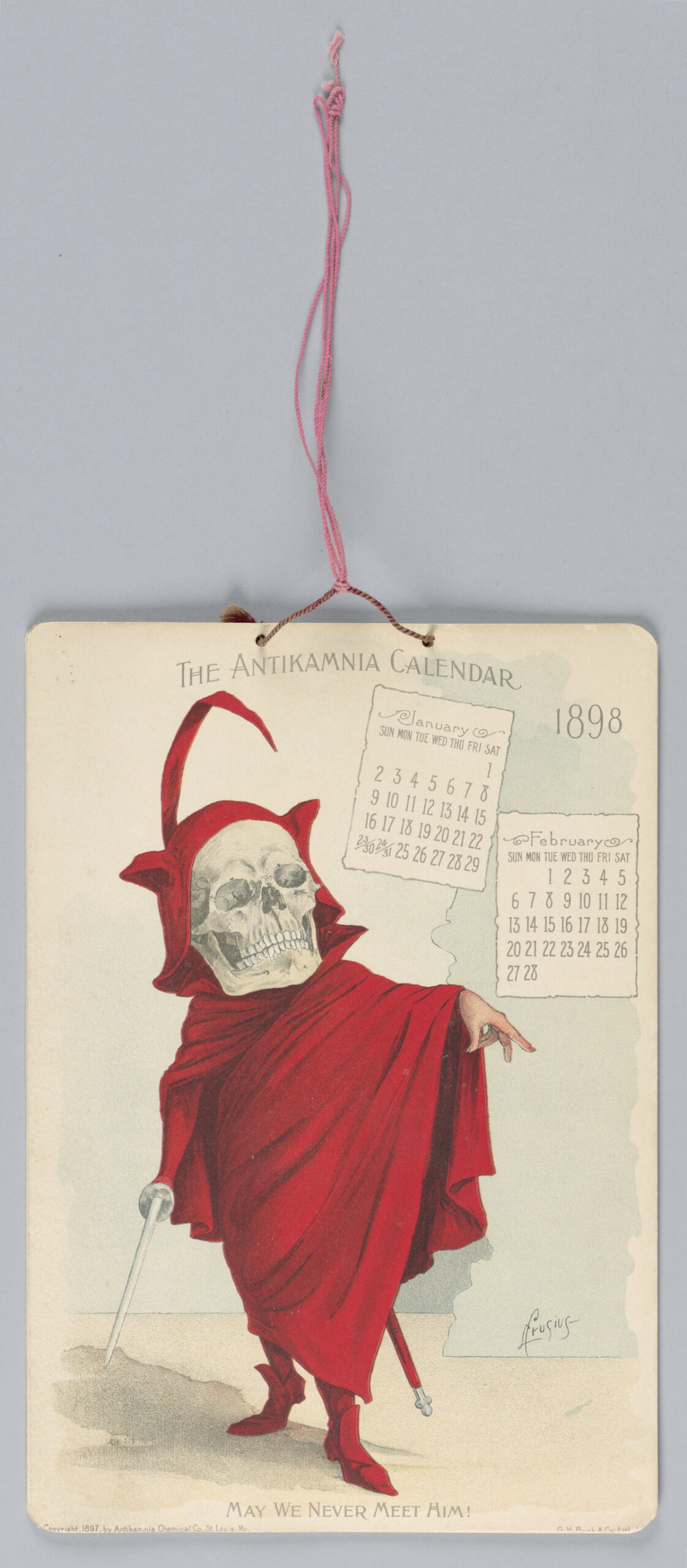The Antikamnia Chemical Company was incorporated in St. Louis, Missouri, in 1888. The company’s main products were patent medicines marketed as “cures” for various ailments such as headaches, neuralgia, and rheumatism. The company’s most popular product was Antikamnia Tablets, which were made from a combination of acetanilide, caffeine, and antipyrine.
The company was known for its unique and striking advertising campaigns, which featured skeletons prominently. These advertisements were intended to convey the idea that Antikamnia’s products were so powerful that they could “kill” pain in the body. The skeletons were used to represent the pain, and the Antikamnia tablets were presented as the cure.
However, it was later revealed that the company’s products were ineffective and potentially dangerous. Acetanilide, one of the main ingredients in Antikamnia Tablets, is known to be toxic in large doses, and the company was criticized for its misleading advertising practices. The American Medical Association found the products ineffective, and the Food and Drug Administration (FDA) later took legal action against the company.
Due to the negative publicity and legal actions taken against the company, Antikamnia Chemical Company went out of business in the early 1900s. Its products were removed from the market, and the company’s false advertising practices served as an early example of the need for greater pharmaceutical industry regulation.


